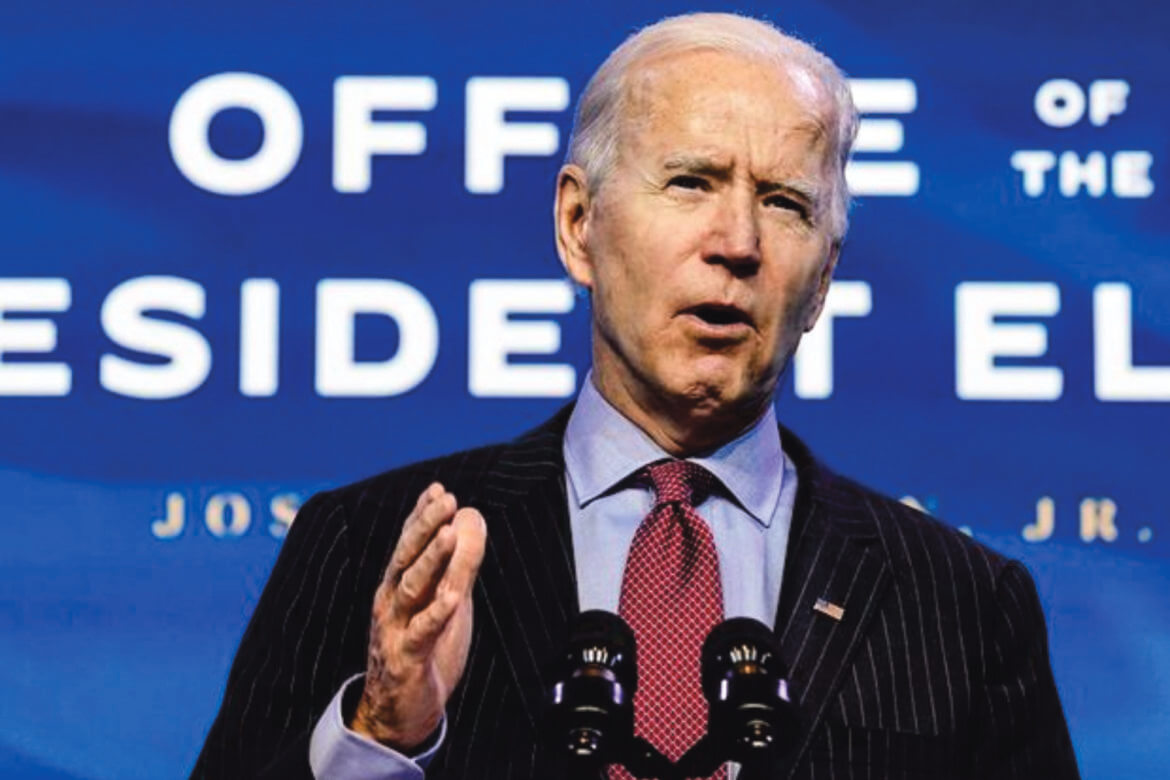Joe Biden and Catholicism in the United States
By Michael Higgins, Toronto (Excerpted from the January 15, 2021 edition of The Globe and Mail)
Volume 35 Issue 1, 2 & 3 | Posted: April 4, 2021

It is often observed that U.S. president-elect Joe Biden wears his emotions on his sleeve. His capacity for empathy is on ready display. But it is not the only thing he carries on his sleeve. He has “Catholic” written all over him.
It is not that you can hear that “the dogma lives loudly within” him, as Senator Dianne Feinstein of California notoriously remarked of Supreme Court Justice Amy Coney Barrett during her hearing for an earlier promotion. There is nothing dogmatic about Mr. Biden’s Catholicism; it is bred in the bone. It is as much a part of who he is as his Irish heritage, his Pennsylvania roots and his Delaware upbringing.
He doesn’t showcase his religious convictions with dubious sincerity – as did, say, Bill Clinton when he carried a Bible with him during his impeachment controversy, or Donald Trump, who visited an Episcopal church for a photo-op after protesters in the area were cleared by armed police in riot gear – nor does he theologize with the cognoscenti, as Barack Obama did with Marilynne Robinson. He just carries his rosary, attends mass regularly, publicly delights in singing 1970s Catholic hymns and credits his faith as the bedrock of solace during those times of bereavement when he lost two children and a spouse.
Although he was not elected because he is a Catholic – a ghastly notion – it is important to know something of the faith that will inform his judgments, define his approach to the citizenry, and establish the moral and political priorities of his administration. He is the second Catholic U.S. president, following John F. Kennedy, and unlike his Irish-American predecessor, he was not confronted with pressure from nativists and anti-Catholics fearful that Swiss Guards would be the new Secret Service on Capitol Hill. If anything, opposition to his Catholicism stems from those co-religionists and bishops who are skeptical of his Catholic credentials given his refusal to disavow Democratic policy on abortion and same-sex marriage.
If some in the U.S. hierarchy are distrustful of his commitment to his faith, the Bishop of Rome is not among their number. In fact, Mr. Biden and Pope Francis have spoken on several occasions. Mr. Biden is on record as sympatico with the Pope’s prioritizing of the poor, prophetic teaching on the climate crisis, hypersensitivity to the social and economic upheaval of forced migration, and he remains deeply grateful for the pontiff’s personal accompaniment at the time of the death of his son Beau.
And if some Catholic clerics have indicated that they would not give him communion, the first Black Cardinal Archbishop of Washington, Wilton Gregory, has indicated that he will not be one of them.
The prolific church historian and commentator Massimo Faggioli will release a new book on the date of Mr. Biden’s inauguration – Joe Biden and Catholicism in the United States – and it makes the compelling case that, as a Catholic who has chosen leadership in public life in great measure because he conceives of it as a vocation and not just a profession, Mr. Biden “symbolically offers Catholics and America an alternative to a reactionary and neo-fundamentalist mode of presence, but also as a lay person, to a clerical one, as he serves in that particular religious and moral ministry that is the presidency of the United States.” In other words, he could embody a leadership that inspires both America and the American Catholic Church.
This is, of course, very American discourse, and is almost unfathomable in a Canadian context; defining the prime ministership as a moral ministry in the way that Franklin Delano Roosevelt once defined the U.S. presidency is not in the cards. But it is fully illuminating in that it underscores what Francis calls “political love” – that stewardship that builds on our common humanity, our shared dignity, rather than the privileging of creed and ideology.
Prof. Faggioli’s aspirational modelling of leadership by the new Catholic president may be utopian in its conception, but there is every evidence that Mr. Biden intends to recapture the soul of his nation, de-polarize the factions, humanize the language, address the astonishing inequities that plague the land and eschew the evanescent satisfactions of political vengeance.
But he is also a seasoned and savvy operator, and he will know, as political and cultural analyst Fintan O’Toole has remarked, that “as a devout Catholic [who] believes in the afterlife … he [will need] to confront an afterlife that is not in the next world but in this one – the long posterity of Donald Trump.”
To do that effectively – to heal rather than further divide his country – he will need all the resources of the faith that has fed his life and his vocation for decades and prepared him for this moment.
Michael W. Higgins is interim president of St. Mark’s and Corpus Christi Colleges at the University of British Columbia and a senior fellow at Massey College, University of Toronto. (see Michael Higgin’s story The Curse of Clericalism: Acting to Address the Sins of the Past)
By Michael Higgins, Toronto (Excerpted from the January 15, 2021 edition of The Globe and Mail)

